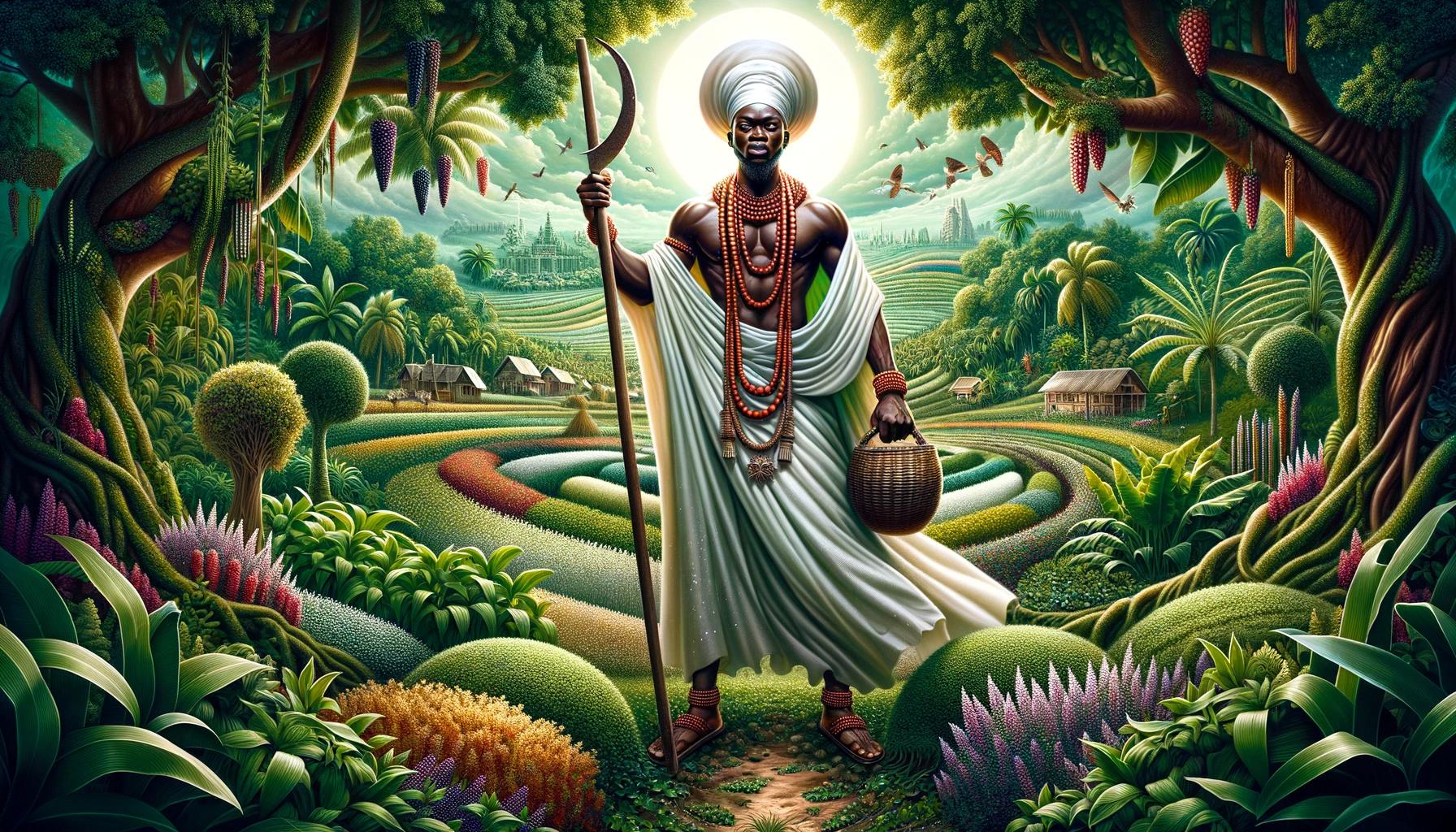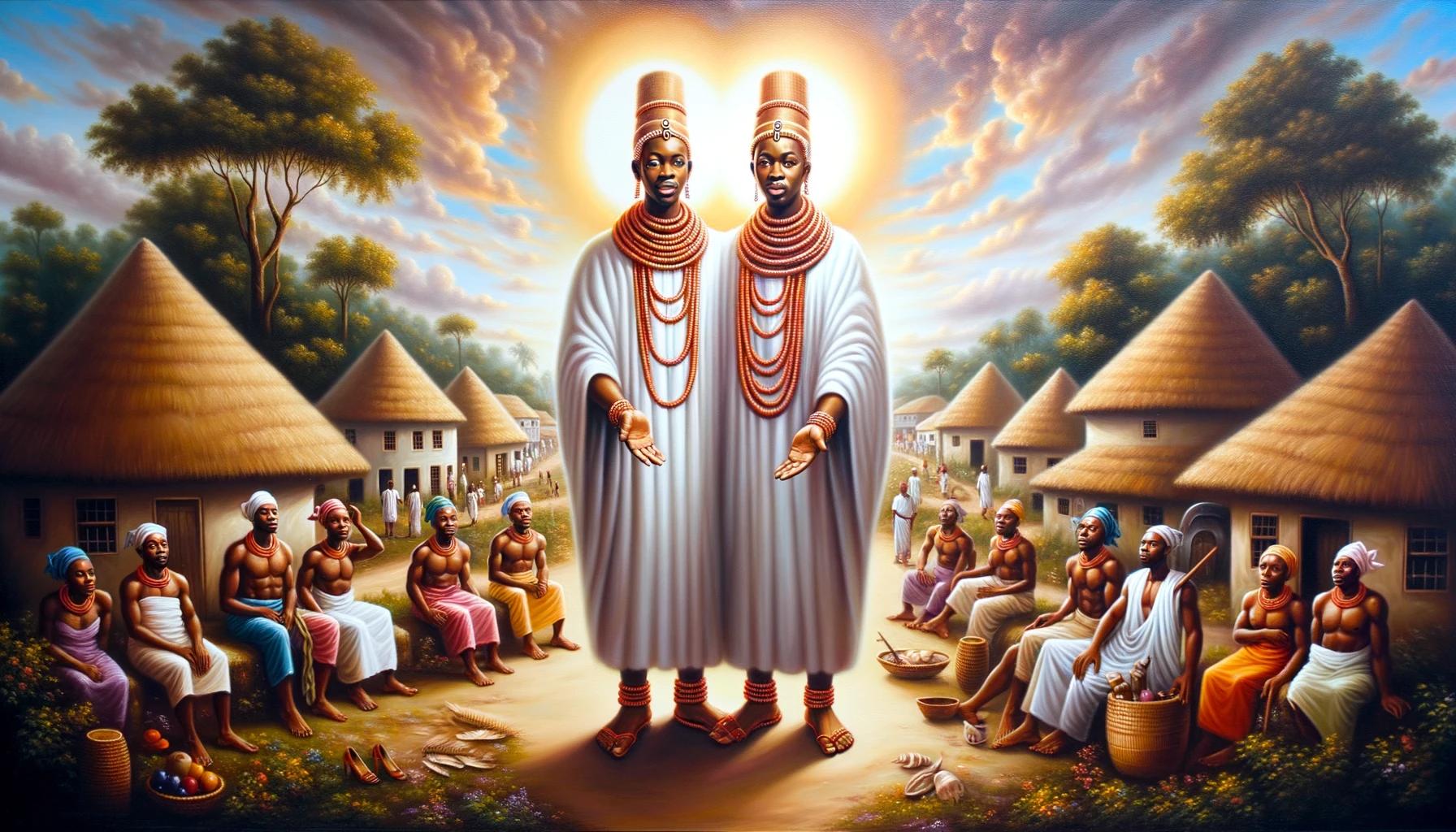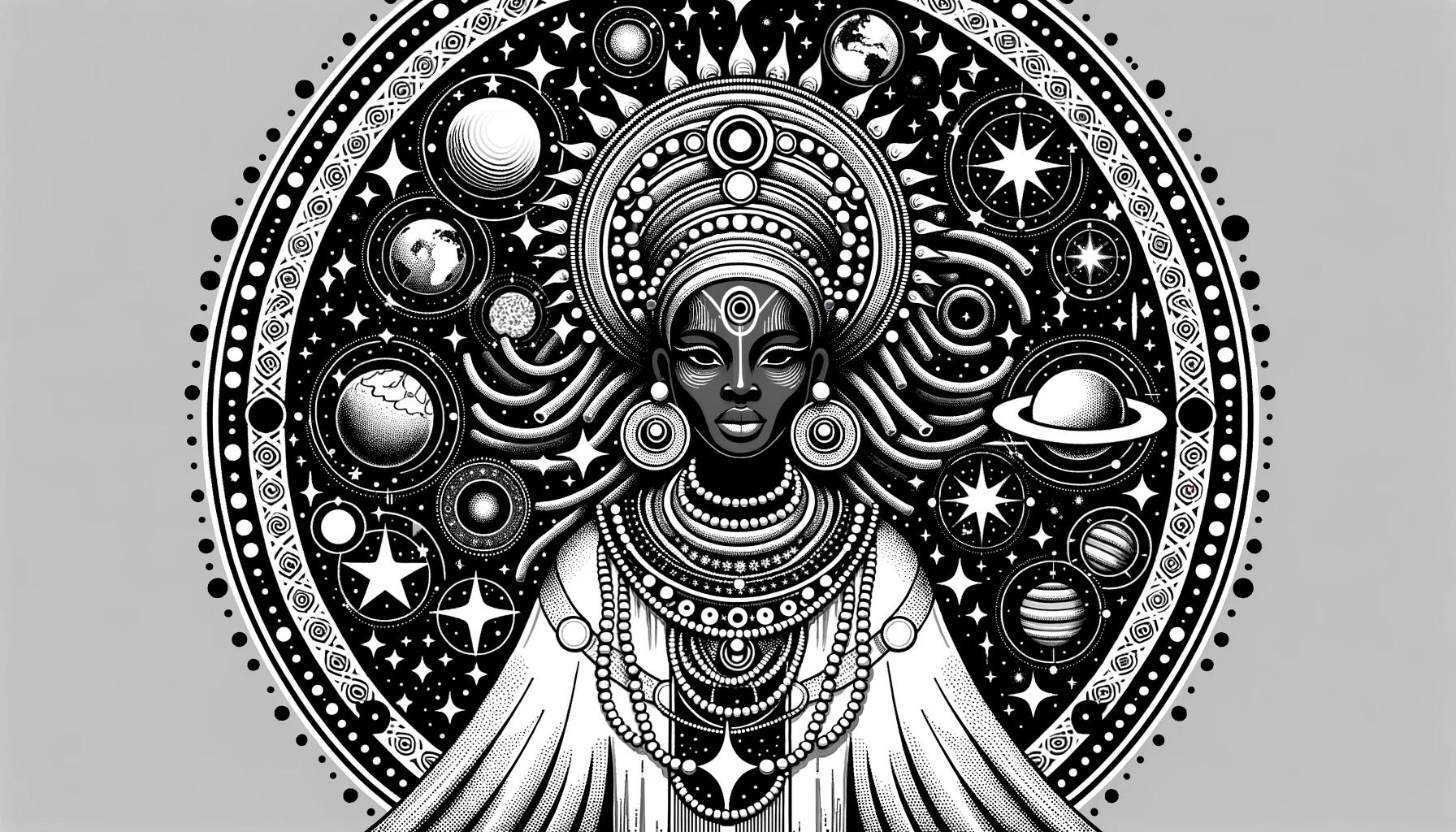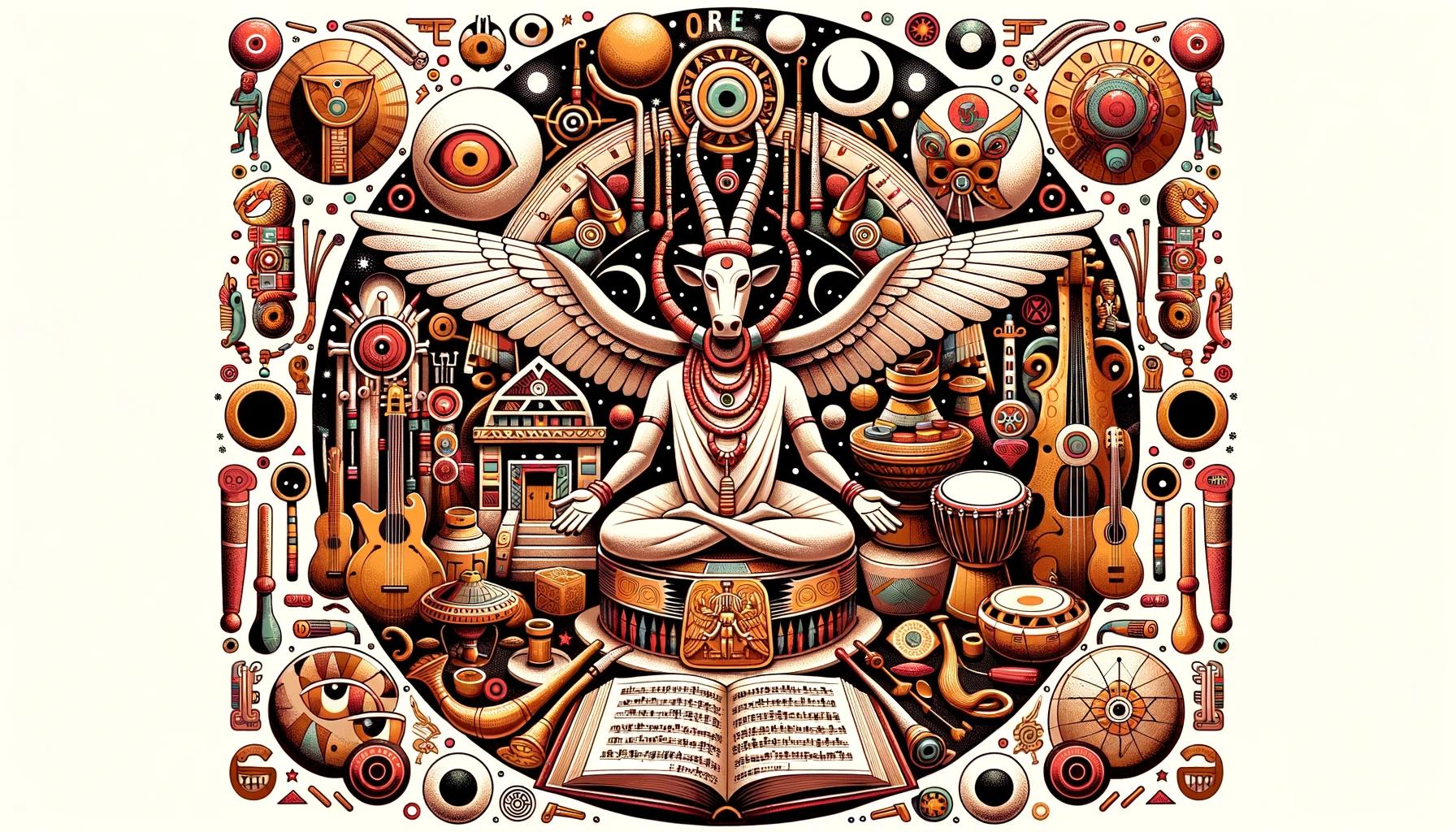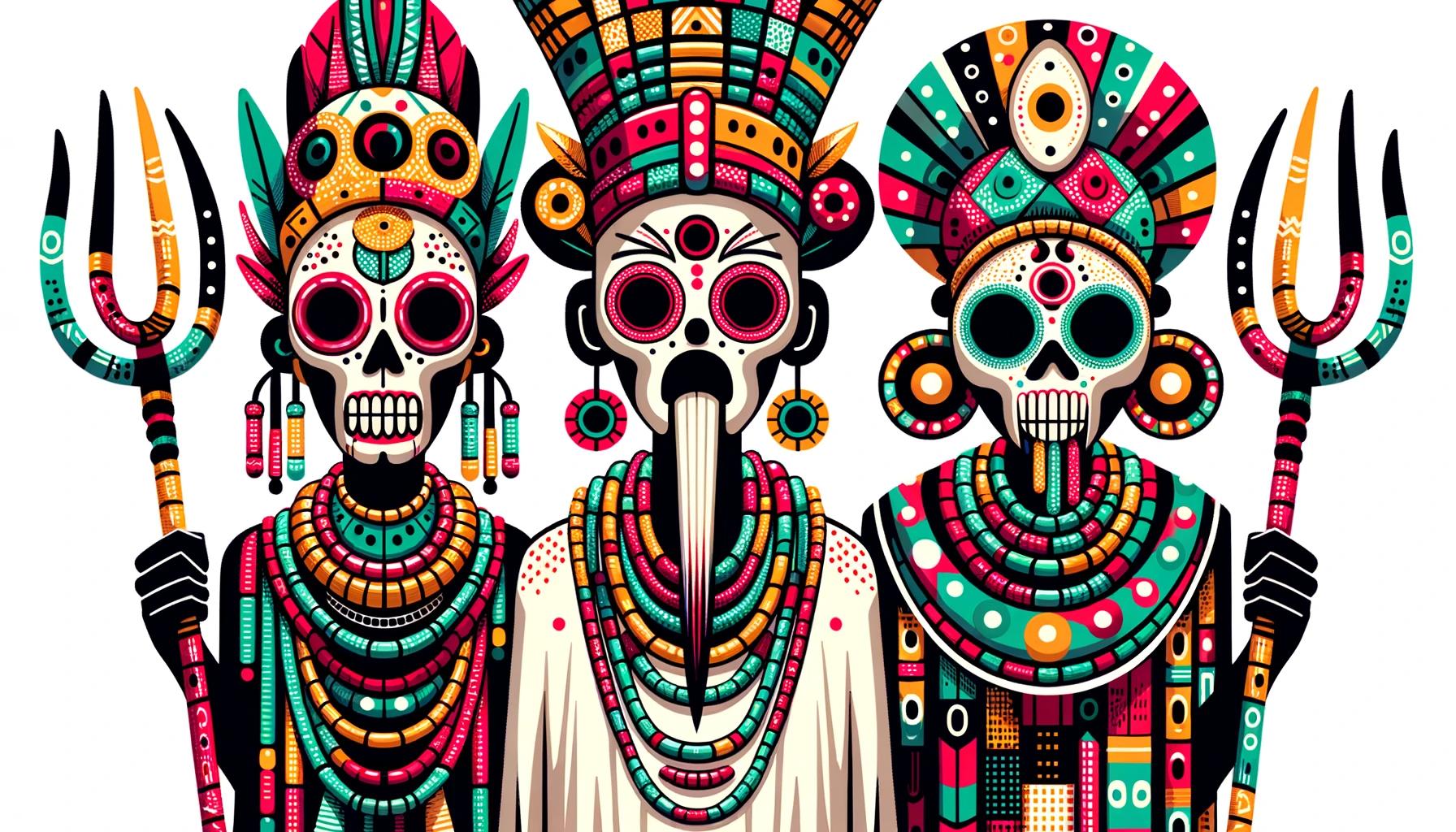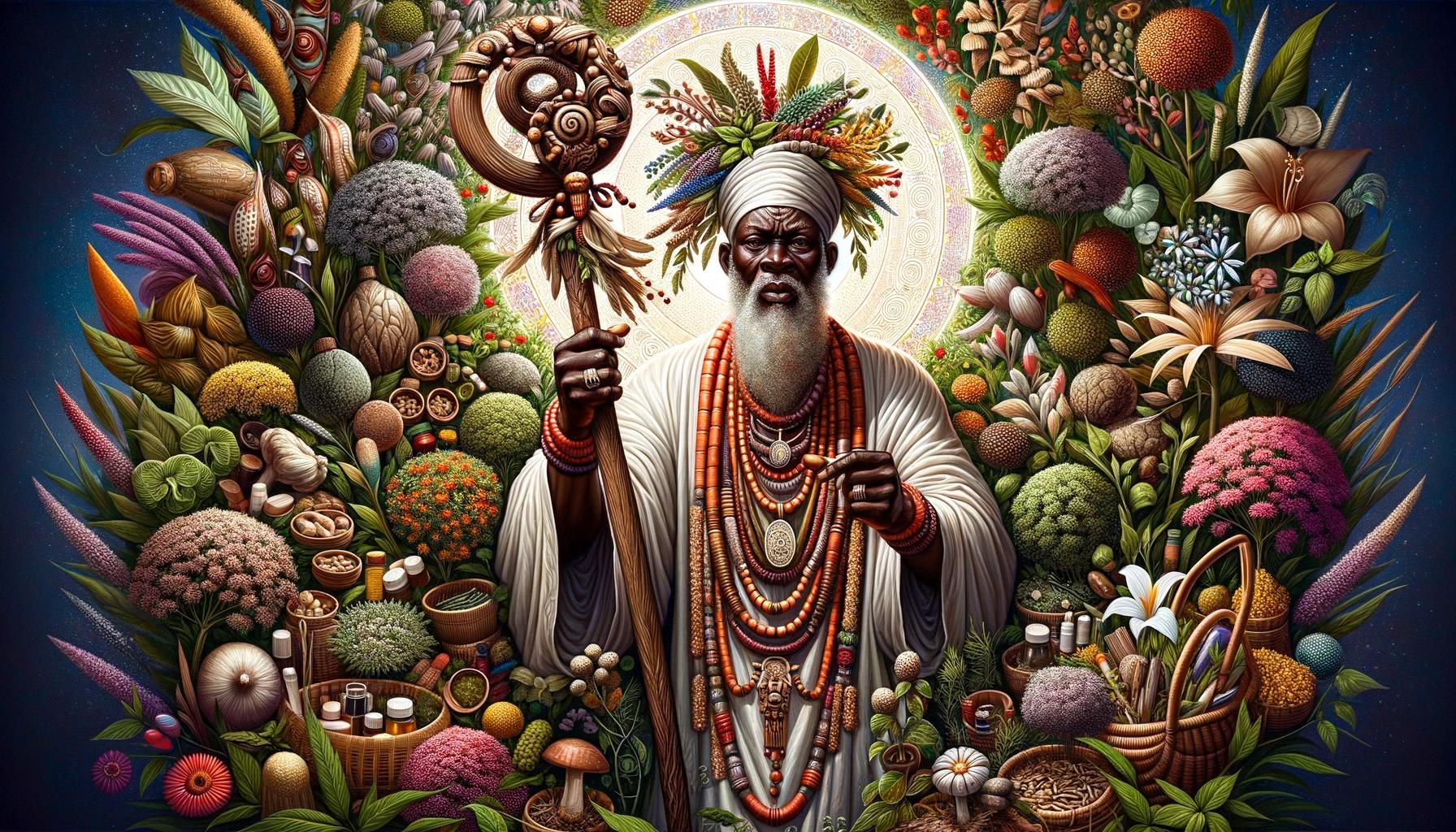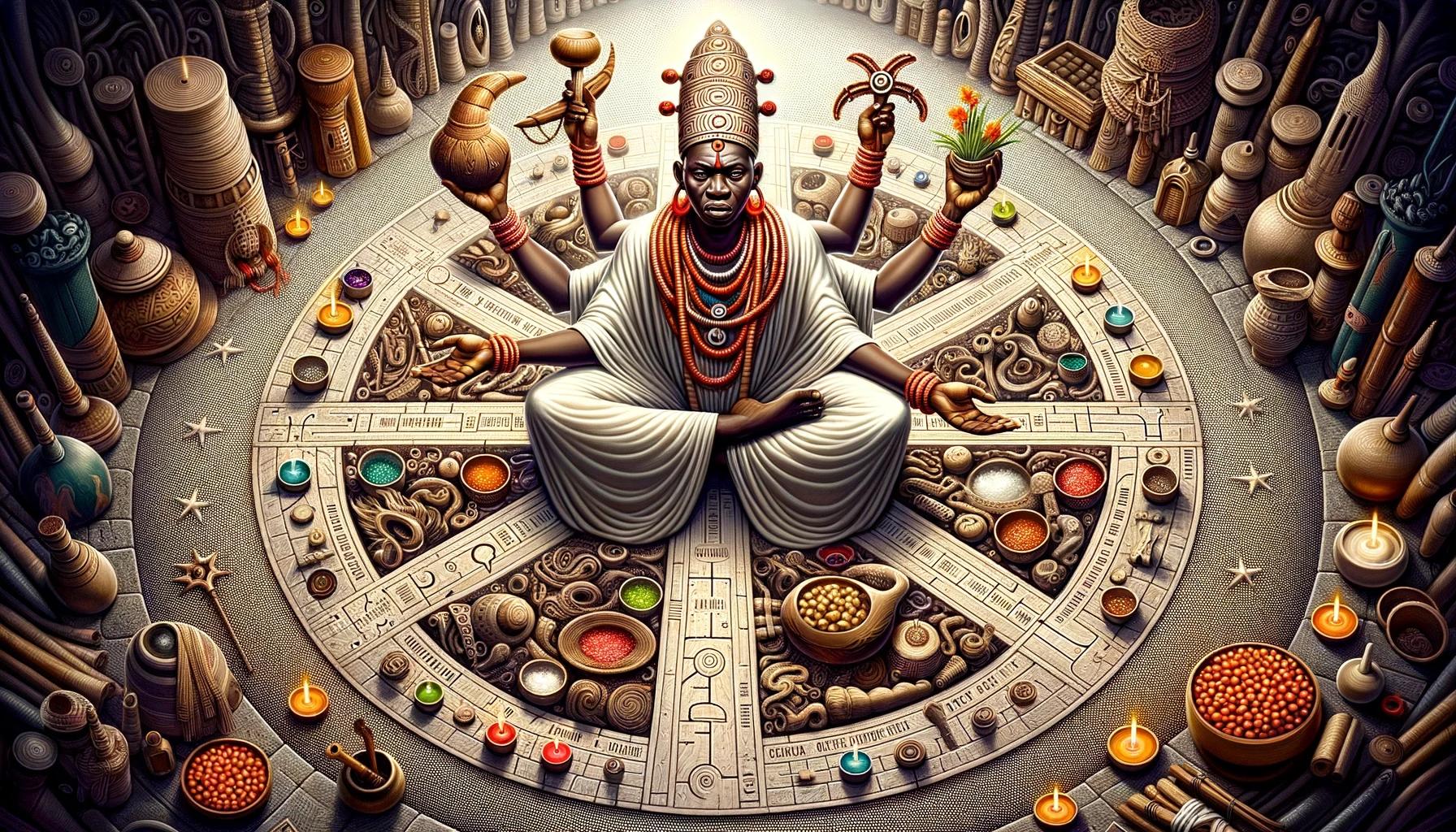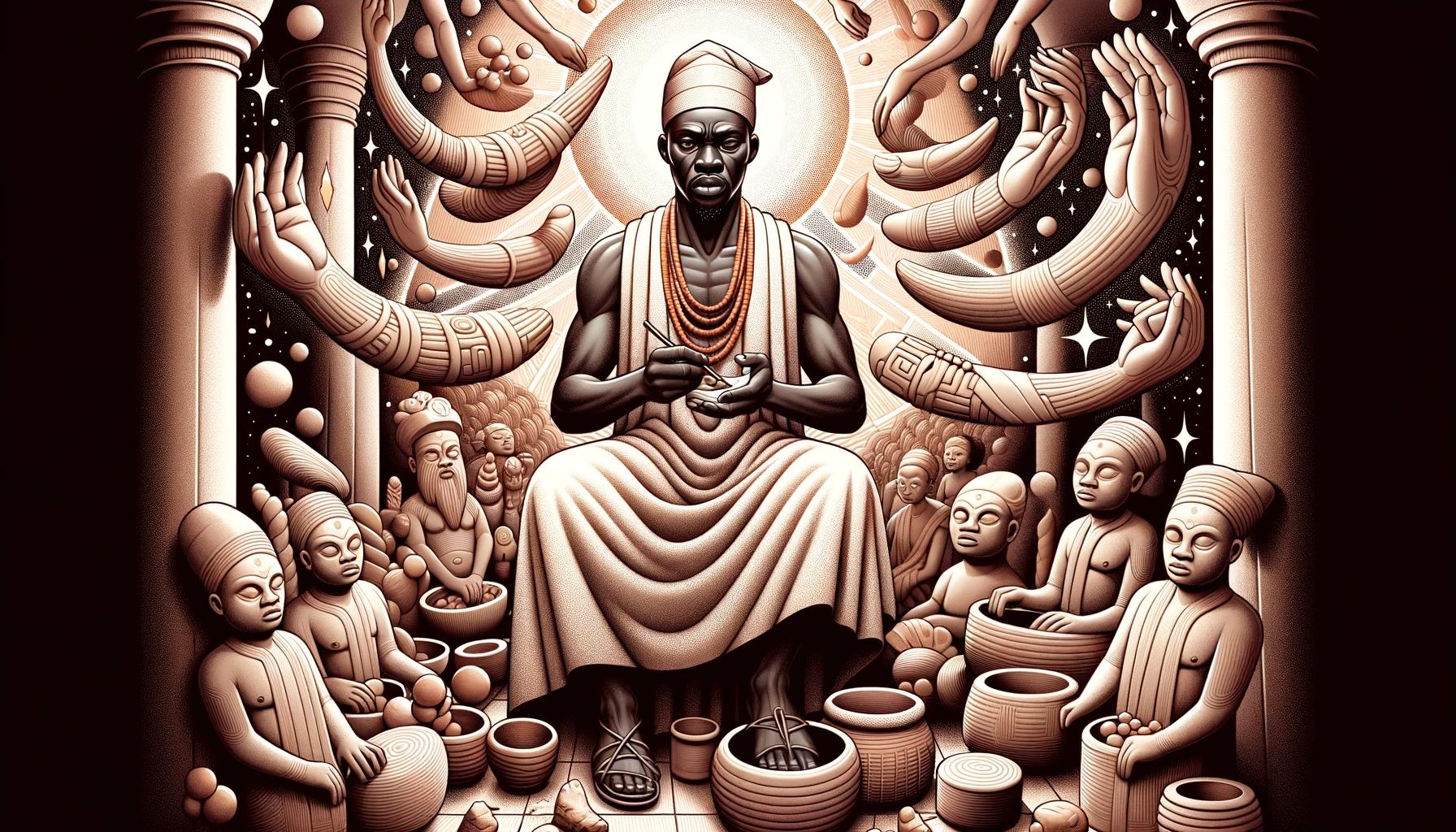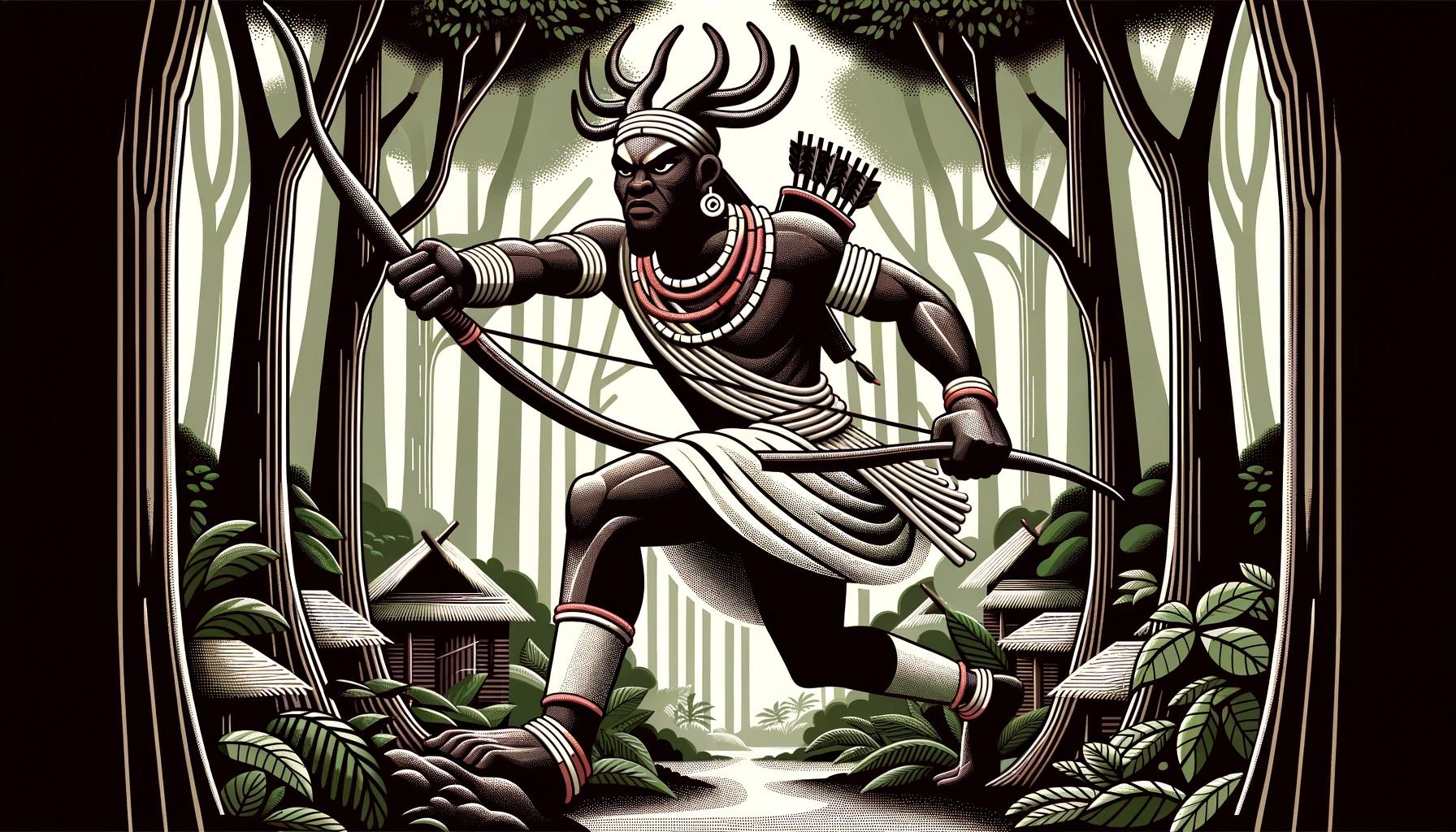‘Oko: The African God of Agriculture – Unveiling the Divine Power Behind Fertility and Abundant Harvests’
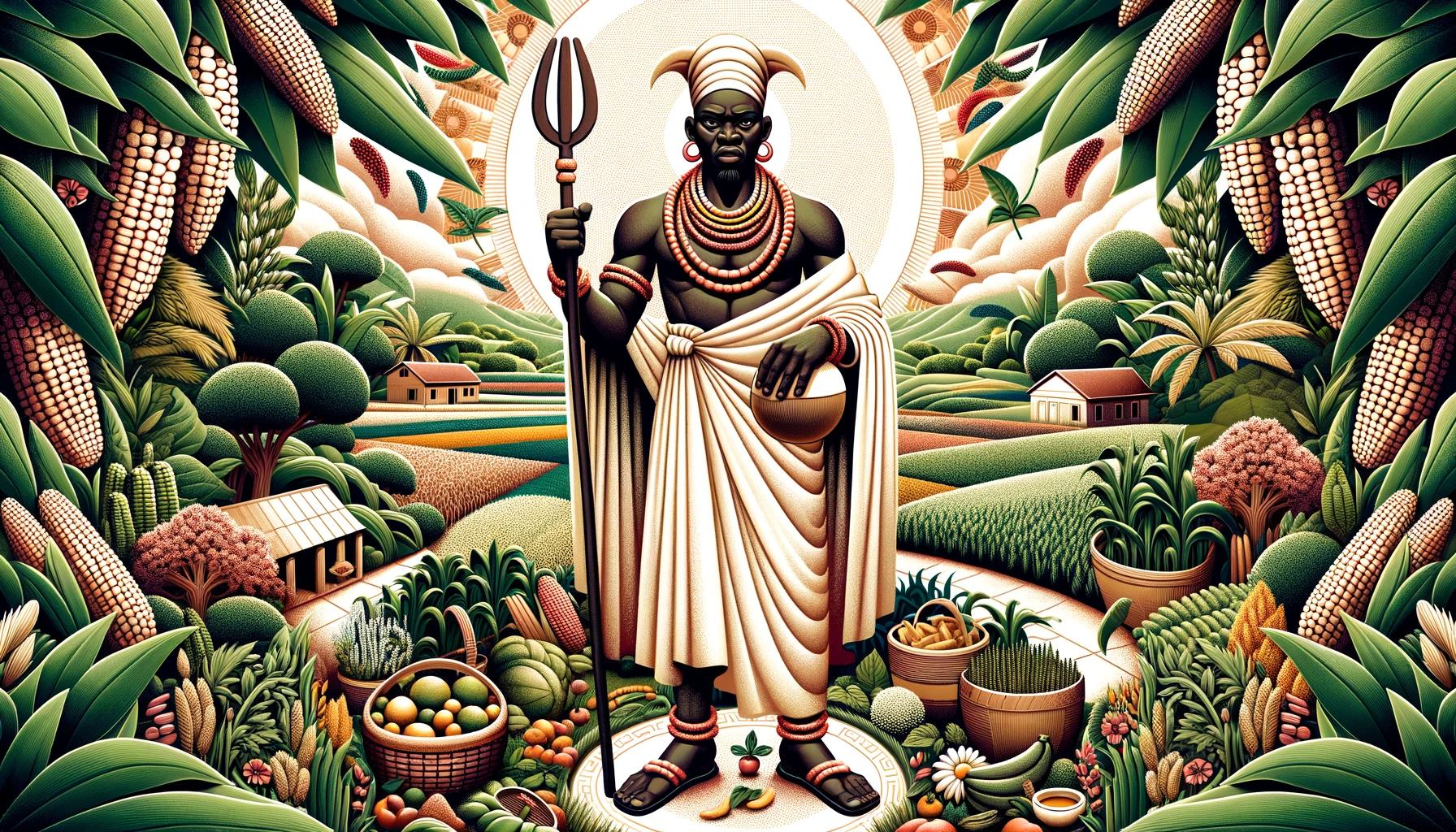
Oko, the African God of Agriculture, is a revered deity in Yoruba mythology. Considered one of the Orishas, Oko holds significance among farmers in West Africa, the Caribbean, and Brazil.
He is known for his ability to bestow fertile lands, bountiful harvests, and even grant children to those who seek. Festivals are held annually to honor Oko, featuring fertility rites and the auspicious arrival of rain.
The symbolism of Oko’s staff as a phallic representation of fertility is notable, and his priesthood is open to both men and women. Offerings, such as fruits and yams, are dedicated to Oko for blessings.
Additionally, Oko holds a role as a judge among the gods, and is associated with the protection of women, with bees acting as messengers. Oko’s worship extends to the syncretic religion of Santería in the Caribbean and the United States, where Yoruba deities meld with Catholicism and spiritual beliefs.
The Mythology of Oko: Exploring the African God of Agriculture
Oko, the African God of Agriculture, is a fascinating figure in Yoruba mythology. This section delves into the captivating tales surrounding his origins, mysterious disappearance, and divine ascendancy, as well as his crucial role as the deity governing agriculture, fertility, and harvests.
The Origins of Oko: Birth from Yemaya and Descent to Earth
Intriguingly, Oko’s lineage can be traced back to Yemaya, a prominent goddess in Yoruba mythology. Born of Yemaya, Oko embarked on a remarkable journey, descending to Earth in human form.
He resided on a modest farm, where he encouraged the soil to yield bountiful products, showcasing his innate connection with agriculture.
Oko’s Mysterious Disappearance and Ascension to Deity Status
However, Oko’s story took a mysterious turn when he vanished inexplicably, leaving behind only his staff protruding from the ground. His astonished neighbors soon recognized the immense power exuding from this enigmatic deity, subsequently revering him as the god of agriculture and fertility.
Oko’s Role as the God of Agriculture, Fertility, and Harvests
Oko’s significance within Yoruba mythology lies in his primary role as the god of agriculture, overseeing the critical elements of fertility and harvests. Farmers, in particular, hold Oko in high regard, seeking his intervention for abundant crops and seeking his blessings as they bring their produce to the market.
The Veneration of Oko: Festivals and Rituals
The veneration of Oko, the African God of Agriculture, is characterized by elaborate festivals and rituals that display reverence for his divine power. These sacred events are an integral part of the spiritual and cultural fabric of the Yoruba people and beyond.
Let’s explore the various aspects of this veneration, including the annual celebrations honoring Oko, rites of fertility, and unique rituals associated with the deity.
Annual Celebrations in Honor of Oko
Each year, dedicated festivals are held to pay homage to Oko, the deity of agriculture and fertility. These celebrations mark the beginning of the rainy season, a crucial period for farmers.
During these festivities, communities come together to express gratitude for the bountiful harvests and seek blessings for the upcoming planting season.
Rites of Fertility and the Significance of Rain
In the veneration of Oko, fertility is a central theme. Rites of fertility are performed to ensure the abundance of crops and the continuation of life. Rain, a vital element for agricultural success, holds great significance in these rituals.
The appearance of rainfall during the festivals is considered an auspicious sign, believed to herald a prosperous agricultural year.
Fertilization Rituals and Consent
A unique aspect of Oko’s veneration is the practice of fertilization rituals. During these rituals, consensual interactions occur where men fertilize crops or symbolically fertilize women in ceremonial contexts. This practice highlights the interconnectedness of human fertility, agricultural abundance, and the divine power of Oko.
It is a cultural expression that emphasizes the unity of nature, agriculture, and human reproduction.
In conclusion, the veneration of Oko encompasses vibrant festivals, fertility rites, and unique rituals that reflect the deep connection between agriculture, fertility, and spiritual beliefs.
These practices, carried out annually, signify the reverence and gratitude towards Oko, the African God of Agriculture, for his ability to provide abundant harvests and sustain life.
Symbolism and Beliefs Surrounding Oko
The mythology of Oko is deeply intertwined with various symbols and beliefs associated with fertility and agricultural abundance.
This section delves into the symbolic representation of Oko’s staff, the inclusive nature of his priesthood, and the offerings and ways to honor this revered deity.
The Phallic Symbolism of Oko’s Staff and its Fertility Power
Oko’s staff holds significant symbolism, representing fertility and the power to nurture abundant harvests.
It serves as a phallic symbol, emblematic of masculine energy and the life-giving force of reproduction. The staff reflects Oko’s ability to bring forth bountiful crops and bless individuals with fertility, ensuring the continuation of life.
The Inclusive Nature of Oko’s Priesthood
Unlike some traditional religious practices, Oko’s priesthood embraces both men and women. This inclusive nature reflects the belief that all individuals, regardless of gender, can connect with and serve as vessels for Oko’s divine power.
Men and women alike partake in performing sacred rites and rituals to honor and express devotion to Oko.
Offerings, Correspondences, and Ways to Honor Oko
- Offerings: To honor Oko, devout followers present offerings of fresh fruits, dried meats, yams, and beans. These offerings symbolize gratitude for the fertility of the land and the abundance provided by Oko’s blessings.
- Correspondences: The colors red and white hold deep significance in relation to Oko.
Red represents vitality, blood, and life force, while white symbolizes purity, fertility, and semen. Additionally, crystals and gemstones, such as red, pink, or lilac turquoise, are associated with Oko’s energy and fertility power.
- Ways to Honor Oko: Devotees can create altars adorned with plants and a container of soil as a sacred space for Oko’s worship.
Placing a statue of Oko in the garden is also a form of reverence. The music of flutes and drumming can be played to create an ambiance of celebration and connection with Oko’s spirit.
By honoring and offering reverence through these practices, followers seek Oko’s blessings for abundant harvests, prosperous agricultural endeavors, and the gift of fertility.
Oko in Yoruba Mythology and Beyond: Associations and Roles
Oko, the African God of Agriculture, holds significant associations and roles within Yoruba mythology and extends beyond its boundaries. This section delves into Oko’s connections to white African yams and other crops, as well as his portrayal as a judge and protector with bees as messengers.
Oko’s Connection to White African Yams and Other Crops
Within the realm of Yoruba mythology, Oko is closely tied to the cultivation of white African yams and various other crops. These specific crops hold immense symbolic importance as they represent sustenance, abundance, and a prosperous harvest season.
The relationship between Oko and these crops highlights his divine influence on agricultural fertility and the nurturing of bountiful yields in the Yoruba community.
Oko as a Judge and Protector, with Bees as Messengers
Beyond his role as the God of Agriculture, Oko assumes the role of a fair judge, ensuring justice and maintaining balance among the gods of Yoruba mythology.
As a protector, Oko watches over the women within the community, safeguarding their well-being and fertility. Bees are considered sacred messengers of Oko, reflecting his connection to nature and fertility. They serve as intermediaries between Oko and his worshippers, bringing messages and blessings from the divine realm.
Overall, Oko’s associations with crops and his role as a judge and protector with bees as messengers reveal the multifaceted nature of this African deity, highlighting his significant impact on agriculture, justice, and the well-being of the community.
Cultural Significance and Beyond: Oko in Santería and Diaspora Religions
Santería, a syncretic religion practiced in the Caribbean and the United States, has incorporated the worship of Oko along with other Yoruba-based deities. In Santería, Oko holds a significant place as a revered agricultural and fertility god.
Oko’s Place in Santería and Yoruba-based Religions in the Caribbean and the US
Within the context of Santería and Yoruba-based religions, Oko is celebrated as a vital force in agricultural practices. Devotees offer prayers and perform rituals to seek Oko’s blessings for productive harvests, fertile lands, and the prosperity of agricultural endeavors.
Santería practitioners honor Oko through ceremonies and gatherings that focus on cultivating a harmonious relationship with the earth and natural elements. During these rituals, offerings of fruits, yams, and other agricultural produce are made to express gratitude and seek divine favor.
Oko’s presence in Yoruba-based religions spans beyond Santería, as practitioners of these belief systems also venerate him for his association with agriculture and fertility. Whether in the Caribbean or in the United States, these religions embrace Oko’s essential role in sustaining communities through the cultivation of crops and the perpetuation of life.
Syncretism with Catholicism and the Spiritual Blending in America
A unique aspect of Santería and Yoruba-based religions in America is their adaptability to syncretism with Catholicism. This blending of beliefs allows for the coexistence of Yoruba deities, including Oko, with Catholic saints.
The spiritual blending creates a rich tapestry of faith that incorporates elements from both traditions.
In Santería, Oko is associated with the Catholic saint St. Isidore the Farmer, viewed as a patron of agriculture and farming.
This syncretic relationship symbolizes the harmonious coalescence of African and European spiritualities, creating a vibrant and diverse religious landscape.
The spiritual blending of diverse traditions in America reflects the adaptability and flexibility of these belief systems, embracing cultural diversity and honoring the interconnectedness of different spiritual legacies.
Through Santería and Yoruba-based religions, Oko’s influence extends beyond his role as a god of agriculture and fertility. He serves as a symbol of resilience, community, and the interconnectedness between humans, nature, and the divine.
.











